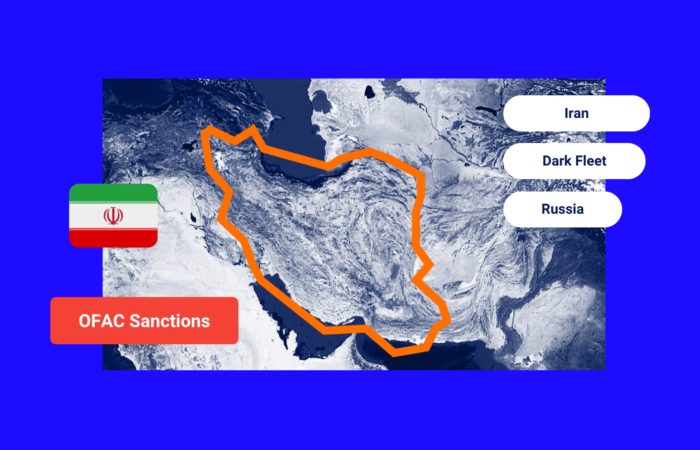GPS Jamming Falsely Placed VLCC Front Eagle in Iran Prior to Collision

What’s inside?
On Tuesday (June 17), the Liberia-flagged Very Large Crude Carrier (VLCC) Front Eagle, carrying nearly 2 million tonnes of crude oil destined for China, collided with the Antigua & Barbuda-flagged suezmax tanker Adalynn approximately 25 nautical miles northeast of Khor Fakkan, UAE.
Earlier today, while transiting from Iraq through the Arabian Gulf and the Strait of Hormuz, the Front Eagle experienced sustained electronic navigation interference. Persistent GPS and AIS jamming that preceded the tanker’s collision signals a new and growing maritime security threat in the region.
Frontline, the operator of Front Eagle, described the incident as “a navigational incident and not related to the current regional conflict.” Similarly, the UK Maritime Trade Office issued a statement affirming there was “no indication that the incident was the result of hostile activity from the ongoing regional conflict”.
GPS Jamming: A Heightened Maritime Risk
GPS jamming incidents pose serious risks to safe navigation, especially in congested and strategically vital chokepoints like the Strait of Hormuz. In such environments, accurate positioning is critical for collision avoidance, effective voyage planning, and adherence to traffic separation schemes. With over 120 vessels transiting this key maritime corridor each day — responsible for transporting approximately 20% of the world’s oil and gas — any disruption can have far-reaching implications for global trade and energy security.
Windward has identified at least two GPS interference hotspots since the onset of increased regional tensions, affecting approximately 1,000 vessels — including 97 tankers and 110 cargo ships — from June 12 to June 15. AIS signals have been notably disrupted around Iranian ports at Asaluyeh and Bandar Abbas, with other false signals appearing off the Omani coast.
Impact on Maritime Traffic
Although commercial shipping has continued uninterrupted, transits through the Strait have declined from 147 vessels on June 9 to 111 vessels by June 15. Ship operators report rising concerns over navigational reliability, highlighting increased occurrences of false positions, signal dropouts, and spoofed vessel identifications.
Rapid Emergency Response
In the aftermath of the collision, UAE coast guard units promptly and safely evacuated the 24-member crew aboard Adalynn. Front Eagle declared a ‘not under command’ status briefly due to a deck fire, which was quickly extinguished.
Shifting Maritime Security Landscape
The ongoing interference with navigational signals in the Gulf marks a shift from conventional threats to more complex electronic disruptions. This evolution significantly increases the risk for commercial vessels, especially in strategic chokepoints. Once GPS jamming occurs, there’s often no way to intervene — vessels may appear in locations they’ve never entered, and systems relying on that data can misclassify legitimate activity. At the same time, if a ship’s navigation system continues to malfunction well beyond the jamming zone, the likelihood of collisions rises — particularly in already congested waters. In such environments, uncertainty spreads faster than clarity, and the consequences are felt both operationally and geopolitically.











